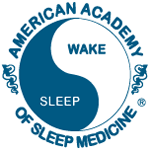A new study reports the discovery of the first gene involved in regulating the length of human sleep. A rare mutation in the “DEC2” gene enables some people to function well on only six hours of sleep per night.
“Subjects with the mutation are able to live unaffected by shorter amounts of sleep throughout their lives,” senior author Ying-Hui Fu, PhD, said in a UC San Francisco statement.
Researchers identified the gene mutation in a mother and daughter; both women go to bed around 10 or 10:30 p.m. and wake up at 4 or 4:30 a.m. without an alarm, reports the New York Times.
"It's not like they have sleep problems, they just don't sleep as much," Fu told NPR.
But do people with the mutated gene really need less sleep? Or does the mutation prevent them from getting enough sleep?
“Right now all we can say is that they sleep less,” Fu told Science News. “Whether they need less, we don’t know.”
We also don’t know if the effect of the gene mutation could be replicated by a drug. Could there be a “short sleep” drug in the future? And would it be safe? It could be decades before we know, reports WebMD.
How common is the “short sleep” gene? USA Today reports that it is found in less than three percent of people.
In contrast, the CDC estimates that from 2004 to 2006, about 21 percent of U.S. adults usually slept for only six hours in a 24-hour period; about 8 percent reported sleeping less than 6 hours.
This means that most of the people who try to get by on six hours of shut-eye are depriving themselves of the sleep they need. This is called behaviorally induced insufficient sleep syndrome. The sleep loss produces daytime symptoms such as fatigue, irritability and poor concentration.
“Many people get only six hours of sleep a night, but we drink coffee and tea to make ourselves stay up,” Fu told the New York Times. “That’s a very different thing.”
The AASM reports that a true short sleeper will function well on five hours of sleep or less; there will be no daytime impairment. There also will be no need to “catch-up” on sleep during the weekend.
Most adults need about seven to eight hours of sleep per night. In 2008 people in the U.S. reported sleeping an average of 8.6 hours in a 24-hour period.
Learn more about the study on SleepEducation.com.
Friday, August 14, 2009
Subscribe to:
Post Comments (Atom)







2 comments:
My mother and I both have always gotten along on 4-5 hours of sleep a night. We don't drink coffee and don't do energy drinks and perform well during the day. We are both professionals and have no problems with sleepiness during the day. We don't take naps either. Interesting to knowthat this is a rare gene..
When I was a youth, my mother sent me to bed at 9 pm on school nights. I could never fall asleep, but would read until she would check on me. Then I would lie in bed trying to sleep, counting sheep, praying, anything to go to sleep.
I wake up naturally after 5-6 hours of sleep. If I go back to sleep, I have vivid dreams and am constantly waking up after the dreams. Not very restful. Only later in life did I find out that my mother only needed 5-6 hours of sleep, as does an older uncle and a younger first cousin.
How interesting to finally find a reason for my sleep pattern.
Post a Comment